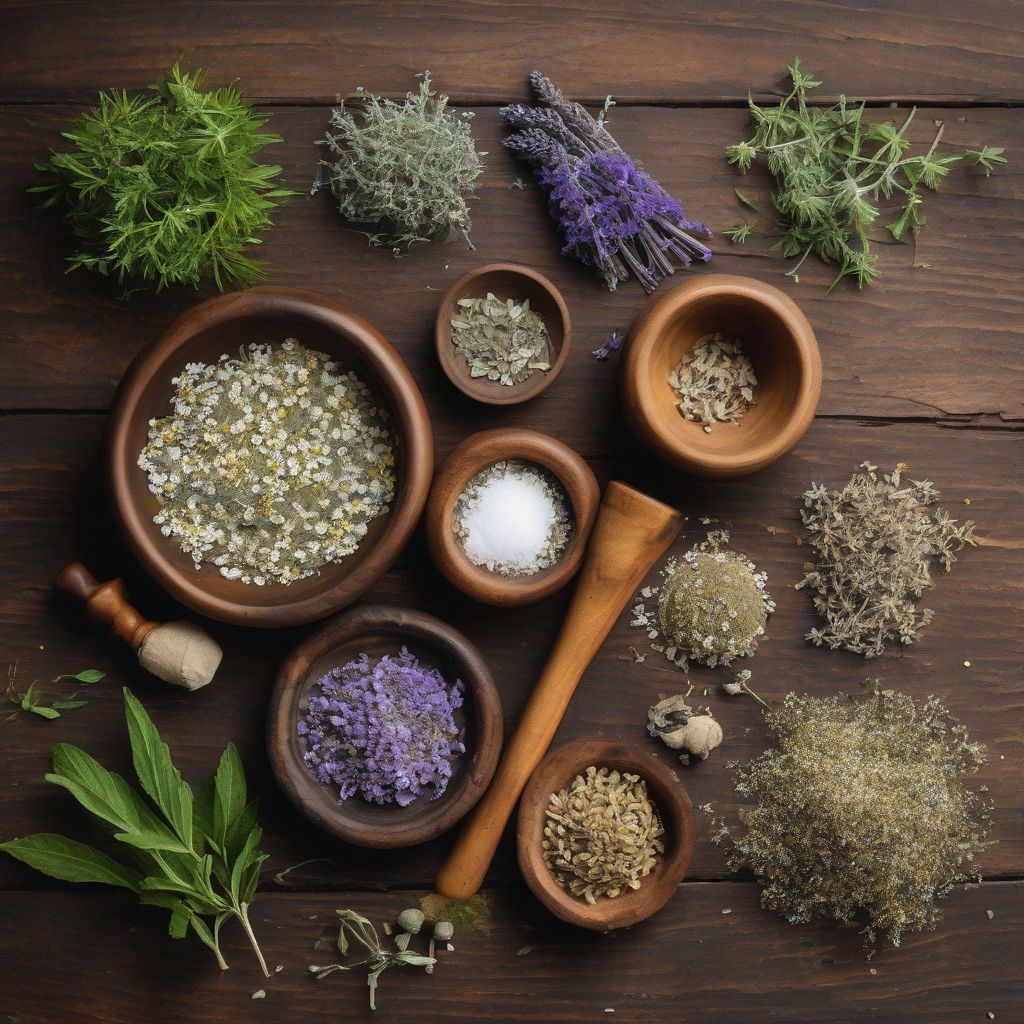Have you ever woken up from a dream, heart pounding, feeling like you just ran a marathon? That’s stress and anxiety for you – they can hit you even before your day begins. But what if I told you that Mother Nature holds the key to unlocking a calmer, more balanced you?
For centuries, people have turned to herbal remedies to soothe frayed nerves and find tranquility amidst the chaos of life. As a nutritionist and meal prep coach, I’ve seen firsthand how powerful these natural allies can be in supporting a holistic approach to well-being.
This article delves into the best herbal remedies for stress and anxiety, backed by both traditional wisdom and scientific evidence.
Understanding Stress and Anxiety: Why Natural Remedies Matter
Before we dive into the world of calming herbs, it’s important to understand what we’re dealing with. Stress, often triggered by external factors like work deadlines or relationship challenges, is our body’s natural response to perceived threats. Anxiety, on the other hand, is a feeling of worry, unease, or fear that can be persistent and overwhelming.
While occasional stress and anxiety are normal parts of life, chronic stress can wreak havoc on your physical and mental health. This is where natural remedies, like the herbs we’ll discuss, shine. They offer a gentle yet powerful approach to restoring balance without the harsh side effects often associated with pharmaceutical interventions.
Nature’s Tranquilizers: Top Herbal Remedies for Stress and Anxiety
Ready to embark on your journey to natural calm? Let’s explore some of the most effective herbal remedies for stress and anxiety:
1. Ashwagandha: The Ayurvedic Adaptogen
Ashwagandha, a staple in Ayurvedic medicine for over 3,000 years, is revered for its ability to help the body adapt to stress. This powerful adaptogen works by regulating cortisol, the “stress hormone,” bringing your body back into balance.
How to Use: Ashwagandha is available in capsule, powder, and tea form. Consult with your healthcare provider for the appropriate dosage for your needs.
2. Lavender: A Calming Sensory Experience
Lavender, with its distinct aroma, is more than just a pretty flower. It’s been scientifically proven to ease anxiety and improve sleep quality.
How to Use: Add a few drops of lavender essential oil to a diffuser, enjoy a warm lavender bath, or sip on lavender tea before bedtime.
3. Chamomile: The Gentle Soother
Chamomile, often enjoyed as a bedtime tea, is renowned for its calming and sleep-promoting effects. This gentle herb contains an antioxidant called apigenin, which binds to certain brain receptors, promoting relaxation and reducing anxiety.
How to Use: Steep a cup of chamomile tea before bed or look for chamomile extracts in supplement form.
4. Lemon Balm: Uplifting Mood and Cognitive Function
This lemony herb is a natural mood booster and cognitive enhancer. Studies suggest that lemon balm can alleviate anxiety, improve memory, and even ease symptoms of ADHD.
How to Use: Enjoy lemon balm tea, use the essential oil in aromatherapy, or take it in capsule form.
5. Passionflower: Quieting a Racing Mind
If racing thoughts keep you up at night, passionflower might be your new best friend. This beautiful flower has a long history of use for insomnia and anxiety, helping to calm the mind and promote restful sleep.
How to Use: Passionflower is available in tea, tincture, and capsule form. Consult with your healthcare provider for dosage recommendations.
 Herbal Remedies for Stress
Herbal Remedies for Stress
[amazon bestseller=”stress relief herbal supplements”]
Integrating Herbal Remedies into Your Wellness Routine
Incorporating herbal remedies into your daily life is simple and enjoyable:
- Start with one herb at a time: Observe how your body responds before adding more to your routine.
- Choose high-quality sources: Opt for organic, sustainably sourced herbs whenever possible.
- Consult with your healthcare provider: Especially if you’re pregnant, breastfeeding, or taking medication.
Beyond Herbs: Holistic Strategies for Stress Management
While herbal remedies offer powerful support, a holistic approach to stress management is key.
- Prioritize Sleep: Aim for 7-9 hours of quality sleep each night.
- Mindful Movement: Engage in activities you enjoy, whether it’s yoga, walking, or dancing.
- Connect with Nature: Spending time outdoors can work wonders for your mental well-being.
- Nourishing Nutrition: Fuel your body with whole, unprocessed foods that support a healthy gut-brain connection.
The Power of Nature at Your Fingertips
Living a life filled with less stress and more joy is within your reach. By embracing the power of natural remedies and adopting a holistic approach to well-being, you can unlock a calmer, more balanced you.
Remember, these ancient herbs are here to support you on your journey to tranquility.
What are your favorite ways to manage stress naturally? Share your thoughts and experiences in the comments below!
